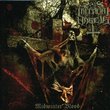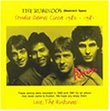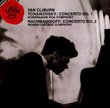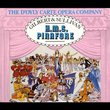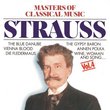| All Artists: Giacomo Puccini, Jules Massenet, Georges Bizet, Alfredo Catalani, Ruggero Leoncavallo, Francesco Cilea, Charles Gounod, Giuseppe Verdi, Vincenzo Bellini, London Philharmonic Orchestra, Sir Charles Mackerras, Renée Fleming, London Voices Title: Renée Fleming Members Wishing: 0 Total Copies: 3 Label: Decca Original Release Date: 1/1/2000 Re-Release Date: 9/26/2000 Genre: Classical Styles: Opera & Classical Vocal, Historical Periods, Modern, 20th, & 21st Century Number of Discs: 1 SwapaCD Credits: 1 UPC: 028946704929 |
Search - Giacomo Puccini, Jules Massenet, Georges Bizet :: Renée Fleming
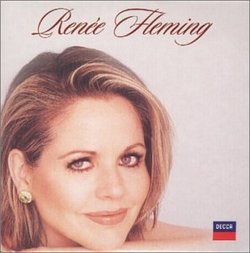 | Giacomo Puccini, Jules Massenet, Georges Bizet Renée Fleming Genre: Classical
Surely, Renée Fleming has one of the most beautiful voices to be heard anywhere today. It combines velvety warmth, creamy richness, soaring radiance, and flawless purity, and seems to flow out without effort, ever... more » ![header=[] body=[This CD is available to be requested as disc only.]](/images/attributes/disc.png?v=a4e11020) ![header=[] body=[This CD is available to be requested with the disc and back insert.]](/images/attributes/disc_back.png?v=a4e11020) ![header=[] body=[This CD is available to be requested with the disc and front insert.]](/images/attributes/disc_front.png?v=a4e11020) ![header=[] body=[This CD is available to be requested with the disc, front and back inserts.]](/images/attributes/disc_front_back.png?v=a4e11020) |
Larger Image |
CD DetailsSynopsis
Amazon.com essential recording Surely, Renée Fleming has one of the most beautiful voices to be heard anywhere today. It combines velvety warmth, creamy richness, soaring radiance, and flawless purity, and seems to flow out without effort, every tone impeccably centered and in tune, capable of almost too much variety of color and nuance. Fleming's breath control is incredible; she can spin out long, arching phrases and build up climaxes with thrilling intensity. The program of this recital displays Fleming's vocal and dramatic gifts to full advantage, and includes both familiar and lesser-known arias from Italian and French operas. Although some of these are not in her repertoire, she clearly feels close to them. The three opening Puccini favorites from Gianni Schicchi, Madama Butterfly, and La Bohème are a bit fussy and over-inflected, hardly suited to the characters' simplicity; but, from then on, Fleming seems completely at one with both her tragic and her lighthearted heroines. She captures their warm inwardness, rapture, passion, ecstasy, and desperation; darkening and lightening her voice at will. Her top notes soar gloriously, her trills laugh. The orchestra is splendid, supporting her all the way and sounding wonderful. --Edith Eisler Similar CDsSimilarly Requested CDs
|
CD ReviewsWhy? Because it is her. Trevor Gillespie | San Jose, California United States | 10/20/2000 (5 out of 5 stars) "The title to my review is the reason why you should buy this CD. I feel that every album Renee Fleming puts out should just be called the title of one of her best albums: "Beautiful Voice" and with each successive album, she should just add a Roman numeral. I believe that would make this Beautiful Voice III or IV. Regardless, I say this, because that's what Renee Fleming has. In every way, she has a beautiful voice. Someone in their review asked, "Do we really need another recording of "O Mio Babbino Caro"? My answer is yes. Every recording soprano should record the basic and famous repetoire. This is how we make comparisons of singers. It is also how we get to hear great works given the special touches of each individual. Something too MUST be said of Charles Mackerras. Here is probably one of the best living conductors that just goes around making incredible music but not making a huge fuss or name for himself. He conducts the orchestra to perfection, in effect, making a perfectly fit glove for a perfect hand. The songs on this CD are ones that have touched many opera fans many times over. Presented on this disc, they are here to touch you again (in beautiful Decca sound)" An essential Diva Disc m.nell@rf.roccadefinance.nl | Kampen, The Netherlands | 10/03/2000 (5 out of 5 stars) "A mutual opera fan and I were discussing the pressing issue of "Diva Recitals" the other day. Do we really need another recording of a Diva singing arias which every single Diva since time in recording history has already sung and recorded? How many "O mio babino caro's" can any single collection handle? On the strength of this recording, I have to answer: "Bring on the Dancing Divas."Let's start with the repertoire: with the possible exception of Manon's first act arietta and the aria from Verdi's "Simon Boccanegra" every opera fan is likely to have at least four different recordings of the arias on this disc readily at hand. These pieces have been done to death. Why would anyone with the international stature of Renee Fleming wish to record them? The answer lies simply in artistry. When listening to this recital, one aspect stands out even above the stature of the singer: the sheer artistry of Sir Charles Mackerras and the London Philharmonic. Together they breathe life into the music, far beyond what might be expected. Listen to the incredible detail in Butterfly's famous aria and the music seems almost new. This quality never falters throughout and can indeed be described as phenomenal, as is the quality of the sound recording.Be that as it may, however, the disc is yet another vehicle for a star singer and Fleming rises to the occasion brilliantly. Unlike her "Beautiful Voice" disc, which was really too much of a vehicle for the title, Fleming here brings something special to every character and begs the question: is there anything this woman cannot do at the moment? Verismo opera has certainly not been her trademark, yet she takes to it as if to the manner born. For me the "Adriana Lecouvreur" aria alone is worth the price of the disc and the rest of the Italian inculsions are not far off. She has the uncanny ability to capture character within a few notes. This is no empty "Fleming sings Fleming" experience - rather it is a collection of characters brought to life by the same artist. The French repertoire is closer to what we know she is singing at the moment. Her "Manon" cries out for a complete recording, although this is unlikely, given the recent issue on EMI with Pappano and the Alagnas. The rendition of Michaela's aria from "Carmen" has to be the most exquisite in living memory and Gounod's Juliette is suitably rendered: not just another display of waltzing coloratura. For the final three tracks Fleming turns to "bel canto", where so many singers are often discovered as "bel cannot". Verdi's "Simon Boccanegra" does not fit exactly into this mould, but Amelia's aria certainly calls for pure "bel canto" singing. Norma's infamous "Casta Diva" is sung masterfully and raises serious questions about a future assumption of this role by Fleming. Why was the cabaletta not recorded, though? As a suitably jaunty finale she sings the famous Bolero from "I Verspri Sicilliani" in its original French guise and includes a perfectly edible top E to round off proceedings. "Brava!" I scream. "More!"For the devoted fans this disc proves that we are not misguided in our devotion: wonderful things are happening to the Fleming voice, such as the added colours in the middle and bottom range. She also proves that her lyric coloratura abilities are beyond question - where have you heard such wonderful trills recently, apart from Gruberova? Above everything else, though, this recording offers a perfect introduction to the standard soprano repertoire for people who might as yet be unfamiliar with it. You'd have to search far and wide for anything better." My first "opera" CD M. Bish | 01/05/2001 (5 out of 5 stars) "I have never listened to opera -- the vocal styling of Loreena McKennitt is the closest I've come to enthusiasm for a singing storyteller and my favorite pop female vocalist is k.d. lang.I heard Renee Fleming perform Shenendoah on the Today show on New Year's Day. I was mesmerized by her voice and knew I wanted to buy "Renee Fleming", despite my disinterest in opera. Again, I had never listened to opera -- nothing about it appealed to me. Until I listened to this album. Something about this voice -- an utter purity and clarity and richness that sends shivers running through my bones. This is Beauty! There is no other word.I know nothing about these arias or the operas from which they come, I know nothing about how previous singers have interpreted these arias. I only know that my body responds with a delight I can't explain when I listen to this CD."
|

 Track Listings (14) - Disc #1
Track Listings (14) - Disc #1
